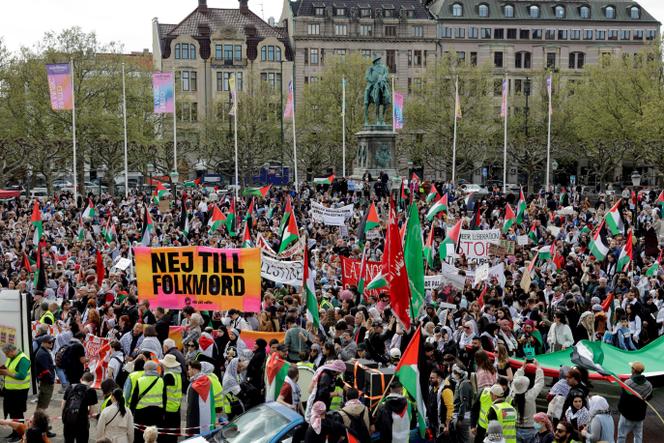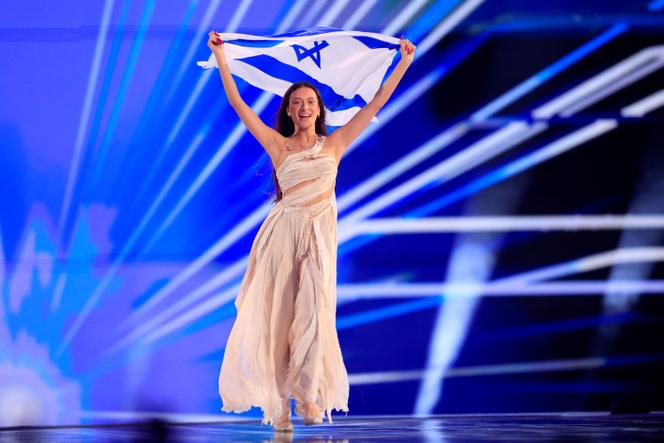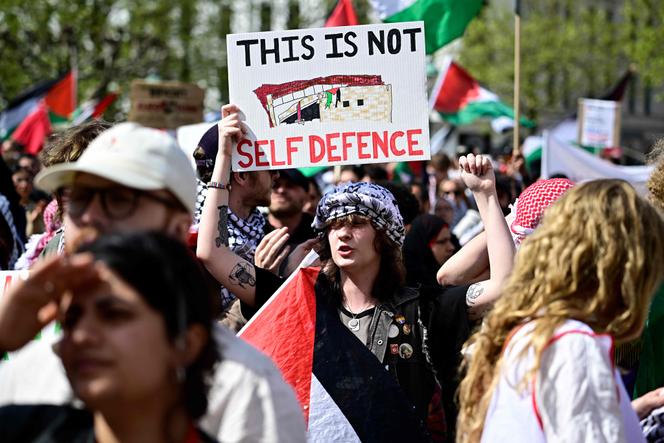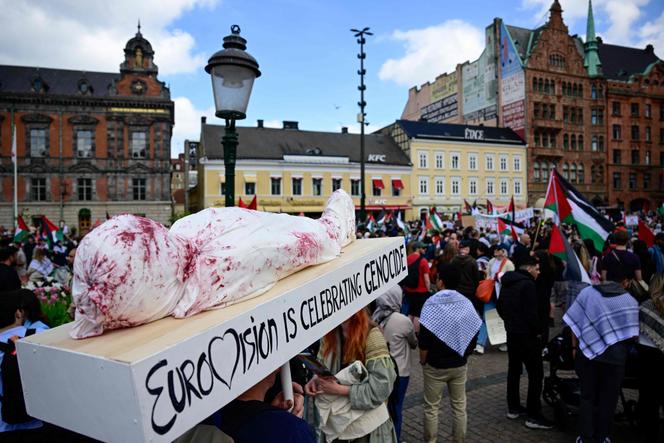


The Eurovision Song Contest final gets underway in Sweden's Malmö on Saturday, May 11, with thousands of protesters expected to culminate a week of tensions surrounding Israel's participation during the war in Gaza.
Israel ranks with Croatia and Switzerland as one of the bookmakers' favorites to succeed Sweden and take home the colorful and kitschy competition watched by more than a hundred million people.
Police say up to 20,000 demonstrators are expected to rally against Israel's participation in Malmö, whose more than 360,000 inhabitants represent 186 nationalities, many from the Middle East. Sweden's third-largest city is also expecting up to 100,000 fans from 90 countries, on the 50th anniversary of iconic pop group ABBA's Eurovision win with "Waterloo."
Meanwhile, the contest was rattled earlier Saturday by the disqualification of Dutch contestant Joost Klein, for reasons that appear to have no link to the controversy over Israel's participation. Dutch broadcaster Avrotros told Agence France-Presse (AFP) in an email that Klein's exclusion was "disproportionate" and that it was "shocked" by the decision. Klein had already courted controversy at the press conference after the second semi-final Thursday, when he repeatedly covered his face with a Dutch flag, seemingly signifying he didn't agree with being placed next to Israel's contestant Eden Golan.
The EBU – which oversees the event – confirmed in March the participation of Golan, despite calls for her exclusion from thousands of musicians around the world. More recently, nine of the acts, seven of whom are finalists, have called for a lasting ceasefire in Gaza.

Golan's song is an adaptation of an earlier version named "October Rain", which she modified after organizers deemed it too political because of its apparent allusions to the Hamas attack. The EBU, which suspended Russia in the wake of the war in Ukraine, insists it does not play politics. Last year it banned Ukrainian President Volodymyr Zelensky from speaking in the arena to protect the event's neutrality.
This neutrality was challenged on Tuesday by Swedish singer Eric Saade, who took part in the opening number of the competition wearing a keffiyeh around his arm. Two days later, the unions at Belgian broadcaster VRT briefly interrupted transmission of the second semi-final to broadcast a message in support of the Palestinians. "We condemn the violations of human rights by the state of Israel," the message said in Dutch, accompanied by the hashtags #CeasefireNow and #StopGenocide.


To gain access to the Malmö Arena, some 9,000 spectators have to pass through a reinforced security system designed in particular to discourage protesters from approaching. Police have said there are no threats directed at the competition, but their presence has been strengthened with reinforcements from Norway and Denmark.
